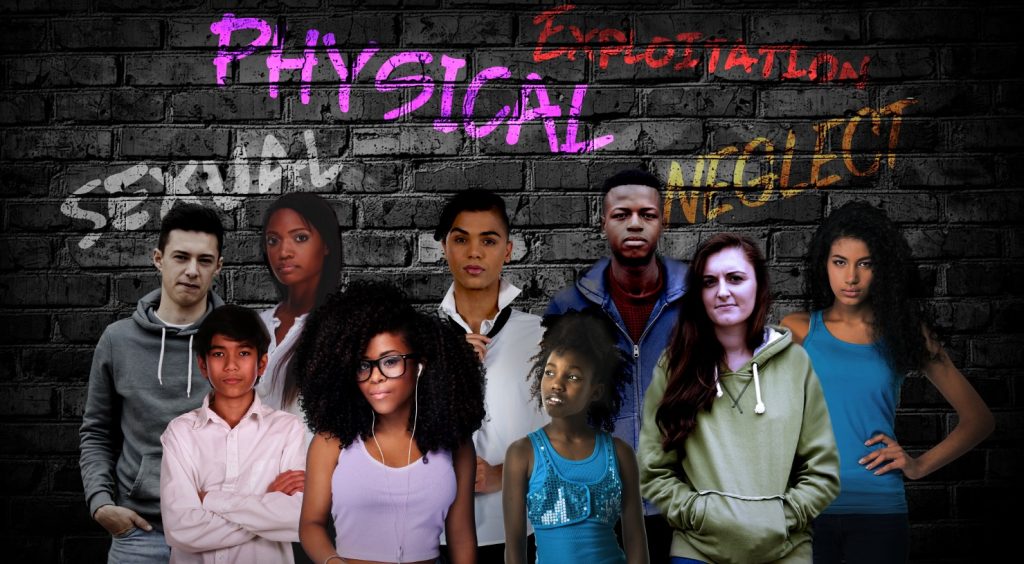
Commercial sexual exploitation of children and youth (CSECY) involves recruiting, harboring, or trafficking of a minor by force, fraud, or coercion for the purpose of sexual exploitation. Commercial sexual exploitation can involve prostitution, pornography, sex tourism, stripping, escort services, phone sex lines, and private parties. This is a form of child sexual abuse. Victims of commercial sexual exploitation experience threats of harm and direct violence repeatedly. On average, early adolescence, between ages 11-14 years, is the most common time for female children to fall victim to commercial sexual exploitation. While many of these children are girls, there is a rising population of boys who may become involved in sex trafficking for different reasons.
Children and youth who have been victims of commercial sexual exploitation often have significant mental health difficulties, including high rates of depression, anxiety, dissociation, PTSD, and suicidal ideation. These children and youth can become dependent on alcohol and street drugs as a method of coping. The long term impact of this victimization can include impaired cognitive functioning, educational deprivation, poor interpersonal relationships, and various physical health problems. Fear for their safety and mistrust of law enforcement affect the ability of these victimized youth to seek help from treatment providers.
Los Angeles has been identified by the Federal Bureau of Investigations (FBI) as one of the thirteen high intensity hubs for this victimization. In response to this fast-growing issue in Los Angeles County, the Transition Age Youth System of Care (TAYSOC) Bureau implemented a training program with two components: Awareness and Clinical Interventions to identify and provide services for CSECY victims. Trauma-informed evidence-based treatments, as well as intensive case management are necessary to address the cumulative trauma for children and youth involved in sex trafficking. It is essential that mental health service providers working with the CSECY population obtain specialized training that is culturally competent and trauma-informed.
For more information on resources and upcoming trainings, please contact
CSECInfo@dmh.lacounty.gov
CSEC Initiatives & Efforts DMH Project Lead:
Myla Lampkin, LCSW
CSEC Initiatives & Efforts DMH Manager:
Karen Streich, Ph.D. – MH Clinical Program Manager III
Training
- Commercial Sexual Exploitation of Children (CSEC) 101 Training
- TBA
CSEC has become an epidemic in Los Angeles County and throughout the United States. It has become critical to increase awareness of CSEC, address related issues that impact the exploited youth and develop plans to intervene and prevent future exploitation.
Faith-based organizations, youth centers, homeless shelters, as well as other county departments may have significant contact with CSEC without them knowing the harsh reality of their lives. These community based agencies will benefit from understanding the signs of exploitation and the resources available to help this population. The training components will be comprised of four modules that address identification, key terminology, risk factors, and how to engage victims of CSEC.
Resources
Child Abuse Hotline: 1-800-540-4000
LA Metro Taskforce: 800-655-4095
National Human Trafficking Hotline: 888-373-7888
CSECY Brochure
CSECY Warning Signs Flyer
CSECY Providers List
CSECY Fact Sheet
CSECY Fact Sheet (Spanish)
Provider Toolkit
LA County 211 (dial 2-1-1 within LA County or visit www.211la.org)
